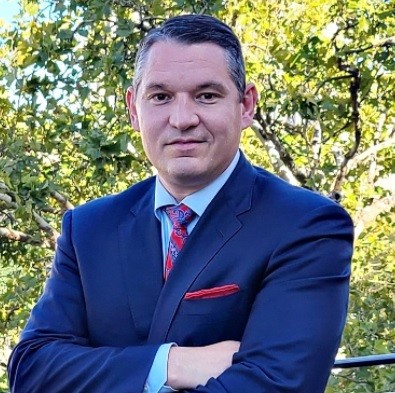
On its face, agriculture seems simple: crops need water, sunlight, and soil to grow. The soil that crops are planted in, however, is complex. In order for plants to thrive, fertile soil requires a variety of elements that can become depleted over time, including nitrogen.
Nitrogen moves through the environment, changing forms as it goes from the atmosphere to the soil, to the plants rooted in the soil, to the animals that eat the plants, and finally back into the atmosphere. Agriculture can disrupt this loop—known as the nitrogen cycle—leading farmers to supplement more nitrogen into the soil, a practice with its own set of environmental risks.
An interdisciplinary team which brings expertise in chemical processes, transport phenomena, transport of natural resources in Earth systems, sustainable material design, and systems analyses is addressing this global challenge by developing technology that will more efficiently deliver nitrogen directly to crop roots, thereby preventing excess nitrogen from leaching into the environment. McGowan Institute for Regenerative Medicine faculty member Steven Little, PhD, Distinguished Professor and William Kepler Whiteford Endowed Professor and Chair of the Department of Chemical and Petroleum Engineering at Pitt, joins the project as co-principal investigator.
“It is exciting to work toward the development of advanced drug delivery systems where the ‘drug’ is a nutrient for crops,” said Dr. Little, whose expertise in such systems focuses on targeted treatment of medication at the site of injury or illness, rather than a diffused, large dose. “These kinds of delivery systems have been developed for years for pharmaceuticals, but less attention has been paid to this area. The potential for impact is pronounced since we’re talking about a similar problem. Why blanket an entire field of crops with nitrogen and risk runoff, when you can selectively deliver the nitrogen directly to the root?”
The research will be led by Leanne Gilbertson, PhD, associate professor of civil and environmental engineering at the University of Pittsburgh Swanson School of Engineering. The project recently received $1,699,999 from the National Science Foundation. Emily Elliott, PhD, Pitt professor of geology and environmental science and co-founder and director of the Pittsburgh Collaboratory for Water Research, Education, and Outreach, will also contribute.
“Rebalancing the nitrogen cycle is a global challenge,” said Dr. Gilbertson. “We were motivated to find a holistic, sustainable solution to feed society while protecting its prosperity.”
The overuse of nitrogen has immense environmental and human health costs, including the overgrowth of plant life in lakes and coastal waters that harm animal life; algal blooms and the dangers they pose; greenhouse gas emissions from the production of nitrogen-based fertilizer; on-farm greenhouse gas emissions from nitrogen processes; and contaminated drinking water.
To deliver nitrogen more directly, the researchers will study the use of liposomes – small spherical sacs containing nitrogen which serve as a delivery system that can increase the percentage of nitrogen absorbed by the plant. Farmers will need to use less nitrogen, diminishing the environmental risks.
“Excess nitrogen is one of the greatest threats to global ecosystem integrity and water quality,” said Dr. Elliott. “During my career as a biogeochemist, I’ve never been more excited to embark on a research project. If we are successful in building fertilizers that are retained in soils, this project will be a profound step forward in protecting ecosystems, water quality, and human health.”
“I am excited to work in an interdisciplinary team of researchers,” noted Dr. Gilbertson. “We are all experts in our respective areas and adept at thinking beyond our niches, across silos, and about big challenges. We will learn from each other over the next four years as we develop sustainable solutions to a global challenge.”
The project, “Sustainability from the Bottom Up: A Holistic Solution to Balancing the N-Cycle,” is a part of the NSF’s ECO-CBET program: Environmental Convergence Opportunities in Chemical, Bioengineering, Environmental, and Transport Systems. The program seeks to solve our most processing environmental and sustainability challenges with imaginative thinking from collaborating scientists across disparate fields.
Read more…
University of Pittsburgh Swanson School of Engineering News Release
